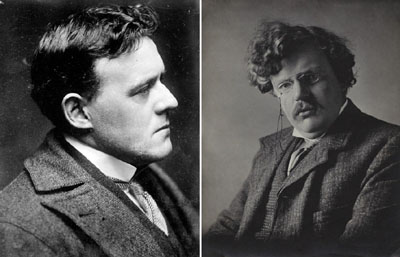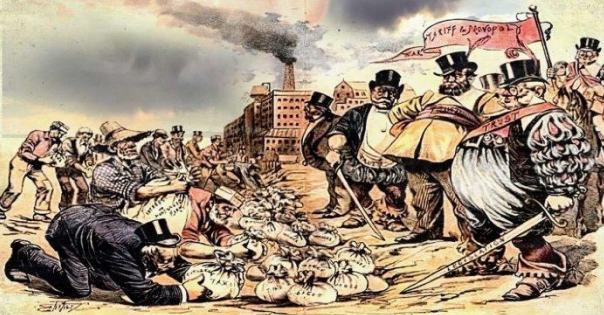.
“While revolutionaries as individuals can be murdered, you cannot kill ideas.”
.

Thomas Sankara (1949 – 1987) has variously been described as a revolutionary, a progressive nationalist, a Marxist, and a pan-Africanist. He was the former President of Burkina Faso (from 1983 until his assassination in 1987) and in that short period of time he promoted land redistribution, a move towards food self-sufficiency, health initiatives, women’s rights & environmental initiatives. We feel that he represents a worthy ‘Point of Reference’ for National Liberals.
Picture Credit: https://ordaf.org/somurgecilige-direnen-devrimci-burkina-fasonun-lideri-thomas-sankara/
IT’S PROBABLY fair to say that many of those who National Liberals regard as a ‘Point of Reference’ hail from many years ago.
.
Here, we think of people like Hilaire Belloc (1870 – 1953), G. K. Chesterton (1874 – 14 June 1936), G. D. H. Cole (1889 – 1959), John Hargrave (1894 – 1982), Leslie Hoare-Belisha (1893–1957), Guiseppe Mazzini (1805-1872), Robert Owen (1771 – 1858) and William Morris (1834 – 1896).
.
However, it would be a mistake to think that we’re only interested in those from centuries ago. A more recent ‘Point of Reference’ is Thomas Sankara, once dubbed the ‘African Che Guevara.’
.
Before we examine his life, it’s worthwhile restating how we define a ‘Point of Reference’. By this we mean that they’ve said or done something that we find of great interest.
.
It should also be noted that one doesn’t even have to agree with a ‘Point of Reference’ to find that what they say or do is of great interest.
.
It’s important to look right across the political spectrum – including those who promote ideas we may totally disagree with – with a dispassionate eye & not react to how they label themselves.
.
It’s also essential not to put anyone who is a ‘Point of Reference’ on a pedestal, so to speak.
.
So who was Thomas Sankara – and why do we regard him as a Point of Reference?
.
Thomas Sankara is remembered as one of Africa’s most visionary, principled, and charismatic leaders. As we noted earlier, the former President of Burkina Faso (from 1983 until his assassination in 1987) has been dubbed the ‘African Che Guevara.’ We’ve seen Sankara described variously as a revolutionary, a progressive nationalist, a Marxist, and a pan-Africanist.
.
(We also believe that, in some respects, it’s fair to describe him as a National Liberal. His commitment to various forms of self-determination was very strong. Hopefully we’ll return to this theme sometime in the near future).
.
To some extent, these political descriptions don’t really matter. What does is that – during his brief time in office – Sankara transformed the course of his country and inspired generations across the continent and beyond.
.
EARLY LIFE, MILITARY CAREER & THE ROAD TO REVOLUTION
.
Thomas Isidore Noël Sankara was born on December 21, 1949, in Yako, a town in colonial Upper Volta (now Burkina Faso). He was raised in a modest family—his father was a gendarme, and his mother managed the household.
.
Sankara was the third of ten children, and his parents stressed the importance of education, discipline, and social justice. He excelled academically and attended a seminary, where he considered joining the priesthood before deciding on a military career.
.
In 1966, he joined the military academy of Kadiogo, where he was introduced to politics and the works of anti-colonial revolutionaries. His training took him to Madagascar, where he witnessed major student uprisings and the fall of a government, events that profoundly shaped his worldview. Exposed to socialist philosophy, Sankara returned to Upper Volta with a deep sense of political purpose.
.
By the late 1970s, Upper Volta was a country mired in poverty, corruption, and political instability. The nation gained independence from France in 1960, but it remained economically dependent and politically fragmented. The military frequently intervened in politics, and Sankara quickly rose through the ranks, earning a reputation for discipline, integrity, and intelligence.
.
In 1981, he was appointed Secretary of State for Information in a new government. However, he soon resigned in protest over government repression of striking workers. He became Prime Minister in 1983 under President Jean-Baptiste Ouédraogo but was dismissed and placed under house arrest for his outspoken views and criticism of the government’s policies.
.
It was during this period that Sankara’s popularity soared, especially among young people, students, workers, and the poor. On 4th August, 1983, with the support of fellow officers and the backing of leftist groups, Captain Thomas Sankara led a coup d’état that overthrew the government, establishing the National Council of the Revolution (CNR).
.
DIGNITY, SELF-RELIANCE & JUSTICE
.
Once in power, Sankara embarked on a radical transformation of the country. He renamed Upper Volta as ‘Burkina Faso,’ (meaning ‘Land of Upright People’ in the local Mossi and Dioula languages). This symbolic act marked the beginning of a new era, focused on dignity, self-reliance, and justice.
From the start, his government launched an ambitious program of economic, social, and cultural renewal. He aimed to break the chains of colonial dependence and eliminate corruption at all levels. Some of his most significant reforms included:
.
-
Land Redistribution and Food Self-Sufficiency: Sankara confiscated land from feudal landlords and redistributed it to peasants, greatly increasing agricultural productivity. His Grow What You Eat and Eat What You Grow campaign led to a dramatic rise in food production. Indeed, Burkina Faso became nearly self-sufficient in staple foods by 1986.
- Vaccination and Health Initiatives: In one of the most successful public health campaigns in Africa, Sankara’s government vaccinated between two – three million children against meningitis, yellow fever, and measles in just a few weeks.
- Women’s Rights: Sankara was a tireless advocate for gender equality. He outlawed forced marriages and female genital mutilation (FGM), promoted female education, appointed women to prominent government positions, and encouraged women to work outside the home and join the military. He famously declared, “The revolution and women’s liberation go together. We do not talk of women’s emancipation as an act of charity or out of a surge of human compassion. It is a basic necessity for the revolution to triumph.
- Environmental Initiatives: Recognising the looming threat of desertification, Sankara launched a massive tree-planting programme, creating “green belts” to combat the desert and conserve the environment. (It’s thought that around ten million trees were planted during this initiative.)
-
Infrastructure and Public Works: The government built railways, schools, health clinics, and water reservoirs, largely through mass mobilisation and voluntary labour. It’s said that Sankara wanted to build a railroad to develop a rare-earth metal mine in Burkina Faso. However, the World Bank refused to loan the money. Therefore, he got a pick and shovel and started building the railroad by hand himself!
- Anti-Corruption Measures: Sankara led by example, reducing his own salary, banning government limousines, and selling off the fleet of Mercedes cars for more modest Renault 5s. Civil servants were required to swear an oath of honesty, and government waste was drastically reduced. In particular, he curtailed the traditional powers of tribal chiefs, who were seen by many as corrupt.
.
All of the above measures would’ve attracted the unwelcome attention of the usual imperialist powers. To make things worse (for those imperialist powers, and ultimately Sankara himself) was Sankara’s staunch opposition to neo-colonialism and foreign domination.
.
For instance, he rejected foreign aid that came with conditions, arguing that it fostered dependency. He called on African nations to refuse to pay their foreign debts, which he saw as a tool of exploitation.
.
His bold stance earned him admiration from radical movements worldwide, though it also isolated Burkina Faso from Western powers and the conservative regimes of neighbouring countries.
.
His simple lifestyle, fiery speeches, and unwavering commitment to justice made him an icon among the youth and marginalized of Africa. He played the guitar, cycled to work, and encouraged self-reliance at every level of society. His government was among the first to promote women’s rights, environmentalism, and anti-corruption as core state policies in Africa.
.
ASSINATION & AFTERMATH
.
On October 15, 1987, Thomas Sankara was assassinated during a coup led by his former friend and colleague, Blaise Compaoré. Many believe the coup was backed by foreign interests – we have no doubt that France, the US & UK would’ve been close to the action – threatened by Sankara’s uncompromising stance on debt and foreign meddling. After his death, many of his reforms were rolled back, and Compaoré ruled for nearly three decades.
.
Despite his short time in power, Thomas Sankara’s legacy endures. He is revered by many across Africa and the world as a symbol of honesty, self-sacrifice, and revolutionary change. His speeches and policies continue to inspire activists fighting for social justice, pan-Africanism, and anti-imperialism.
.
Festivals, documentaries, books, and even hip-hop music have kept his memory alive. Statues and murals honour his legacy in Burkina Faso and abroad. In recent years, the Burkinabé people (as the people of Burkina Faso are called) have sought justice for his assassination. In 2022, Blaise Compaoré and several others were convicted in absentia for their roles in Sankara’s murder.
.
We believe that Thomas Sankara’s story is a testament to the transformative power of visionary leadership, selflessness, and courage. Though his time was brief, his ideals live on. With all this in mind, we feel that Thomas Sankara is indeed a worthy ‘Point of Reference’ for National Liberals.












































